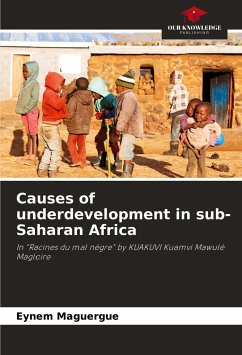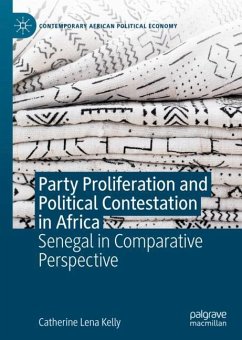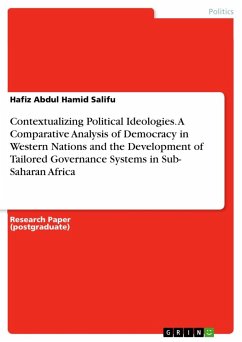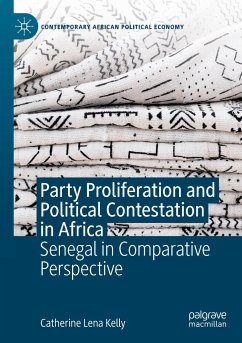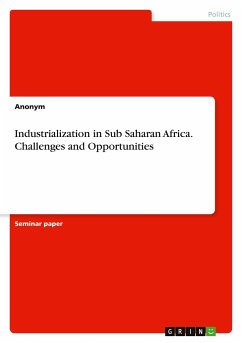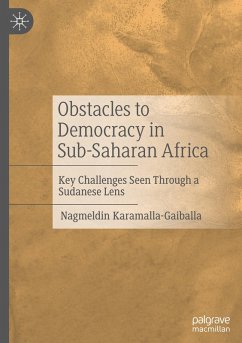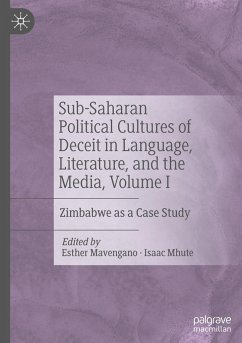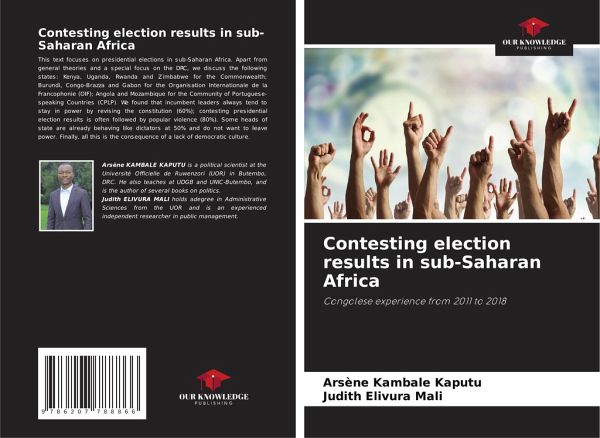
Contesting election results in sub-Saharan Africa
Congolese experience from 2011 to 2018
Versandkostenfrei!
Versandfertig in 6-10 Tagen
40,99 €
inkl. MwSt.

PAYBACK Punkte
20 °P sammeln!
This text focuses on presidential elections in sub-Saharan Africa. Apart from general theories and a special focus on the DRC, we discuss the following states: Kenya, Uganda, Rwanda and Zimbabwe for the Commonwealth; Burundi, Congo-Brazza and Gabon for the Organisation Internationale de la Francophonie (OIF); Angola and Mozambique for the Community of Portuguese-speaking Countries (CPLP). We found that incumbent leaders always tend to stay in power by revising the constitution (60%); contesting presidential election results is often followed by popular violence (80%). Some heads of state are a...
This text focuses on presidential elections in sub-Saharan Africa. Apart from general theories and a special focus on the DRC, we discuss the following states: Kenya, Uganda, Rwanda and Zimbabwe for the Commonwealth; Burundi, Congo-Brazza and Gabon for the Organisation Internationale de la Francophonie (OIF); Angola and Mozambique for the Community of Portuguese-speaking Countries (CPLP). We found that incumbent leaders always tend to stay in power by revising the constitution (60%); contesting presidential election results is often followed by popular violence (80%). Some heads of state are already behaving like dictators at 50% and do not want to leave power. Finally, all this is the consequence of a lack of democratic culture.





